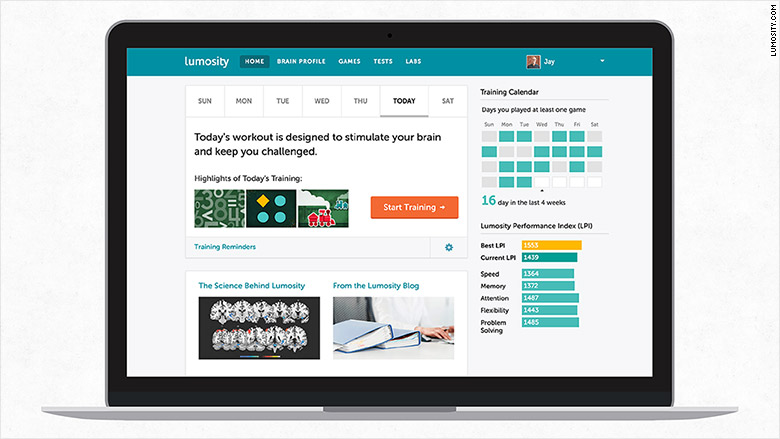
Federal regulators say Lumosity deceived consumers about the science backing what its "brain workout" program can do.
Now its creator, Lumos Labs, has agreed to a settlement with the Federal Trade Commission that includes paying a $2 million fine.
If the company breaks the terms of its settlement, it could be on the hook for as much as $50 million, regulators said Tuesday.
Lumosity offers subscription-based access to games and activities on its website and mobile app, and the company has touted the program's "proven" ability to enhance brain function, ward off degenerative brain diseases, and improve academic and athletic performance.
The FTC, however, says the company didn't have evidence to back those claims, which were widely promoted through email campaigns, social media posts and advertisements, including some that appeared on CNN.
"Lumosity preyed on consumers' fears about age-related cognitive decline, suggesting their games could stave off memory loss, dementia, and even Alzheimer's disease," FTC Bureau of Consumer Protection director Jessica Rich said. "But Lumosity simply did not have the science to back up its ads."
Lumos Labs did not admit or deny wrongdoing and says it no longer uses the advertising language criticized by the FTC.
The company must notify all its subscribers of the FTC settlement and offer them an easy way to cancel auto-pay subscriptions, which cost about $15 per month.
Lumos Labs said in a statement that the settlement does not "pertain to the rigor of our research or the quality of the products" and it remains "committed to moving the science of cognitive training forward."
A slew of platforms tools that claim to boost users' brain function have popped up over the past few years, and the neuroscience community hasn't reached a consensus on the effectiveness of "brain training" games.
According to its website, Lumosity has 70 million "brain trainers" across 182 countries.

